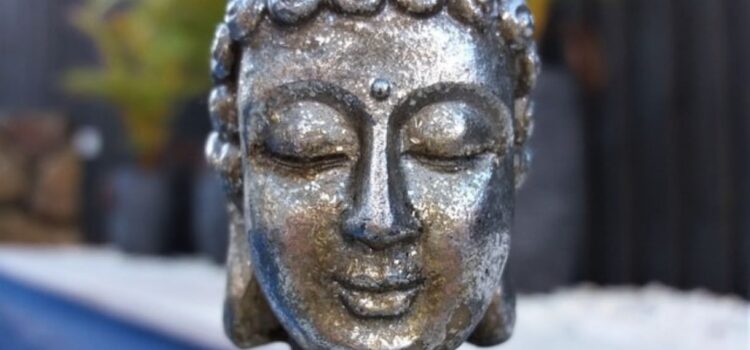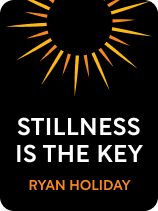

This article is an excerpt from the Shortform book guide to "Stillness Is the Key" by Ryan Holiday. Shortform has the world's best summaries and analyses of books you should be reading.
Like this article? Sign up for a free trial here.
Are your thoughts always racing out of control? Do you find it difficult to calm your mind so you can focus and think straight?
Many people are overwhelmed by mental noise such as racing thoughts and irrational worries. This wastes a lot of mental energy but adds no value to your life. To regain peace, you need to learn to direct your mental energy in a more intentional way.
With this in mind, here are some tips on how to cultivate stillness of the mind so you can think clearly and rationally.
Stilling the Mind
According to Holiday, cultivating stillness of the mind begins with learning to consciously control your thoughts. To that end, you need to stop wasting energy on the wrong things, such as fear and negativity, and free up that energy for developing positive mental habits and qualities.
Conserve Your Mental Energy
Prepare your mind for stillness by eliminating the amount of mental energy you waste. This will give you more energy to devote toward strengthening your mind with confidence and wisdom. Holiday explains how limiting your mental consumption, prioritizing your daily tasks, and making space for silence all reduce mental energy and create the right conditions for stillness.
First, he says our mental states are affected by the news and other information we consume. Anything you read or listen to will influence your mind, often in detrimental ways. So one thing he advises is that you should limit your exposure to the news and don’t consume it in real time. Instead, give it a few days—this will naturally sort out what’s important to your life and what’s not. Put simply, the important information will still be important later and the unimportant won’t. By waiting and only consuming what is crucial, you can avoid wasting mental energy on information that doesn’t matter.
Holiday points out that the need to constantly be “informed” and up to date on everything is rooted in ego. We fear looking ignorant and being left out or left behind. In reality, it’s not necessary to know what’s going on all over the world at all times. Most of it is a waste of your valuable time, and because the media sensationalizes everything and focuses on the negative, the consumption can clutter and disturb your mind.
Create a Quiet Atmosphere
In addition to limiting your mental consumption, freeing up your mental energy requires creating a quieter atmosphere in your life. Holiday says we’re constantly trying to avoid silence and fill it with any noise we can find, but we can never find peace that way. Trying to cover up and avoid your thoughts with literal and figurative noise is counterproductive. To make space for silence in your life, Holiday recommends the following:
- Ignore the news.
- Disable social media and email notifications.
- Silence text notifications.
- Limit (or eliminate) your contact with people who bring drama or conflict to your life.
It’s important that you protect your mental space. Holiday says you should think of this as putting up boundaries to prevent mental garbage from coming into your mind.
Maintain Your Mental Clarity
You must keep your mind clear in order to think deeply. While this may sound like a paradox, he explains that it’s not—it means learning to think right, about the right things, by quieting the incessant “chatter” in your mind and learning to consciously control your thoughts. He describes it as similar to fishing: You must be slow, still, and quiet to catch something. In this case, what you’ll “catch” will be creative insights, ideas, and solutions that otherwise would have been buried beneath the junk.
One practice Holiday recommends for maintaining your mental clarity is journaling. A daily journaling practice is the mental equivalent of regularly clearing the cobwebs out of your home. It’s no coincidence that almost every creative or intellectual genius in history kept a journal. Many people journal first thing in the morning, and some write again at the end of each day. Just write down any thoughts that come into your head. Holiday says there’s no right or wrong way to journal, but if you practice some amount of freewriting like this every day, it will clear the jumbled thoughts from your mind, allow you to reflect back on your thoughts later, and make room for flashes of insight to come through.
Another practice for maintaining a clean and clear mind is to focus on being in the present. Holiday says we waste too much of our time and mental energy thinking about the past or future. Those do not exist at this moment. Only this moment is real and present. Remind yourself of this every day. One practical step he recommends you can take toward this goal is to not be so concerned with taking photos of everything, but enjoy moments as they are.
He also points out that engaging in creative endeavors helps keep us in the present. Presence is one thing that characterizes artists, because being creative means being in the “flow” of the moment. So, a regular practice of journaling, focusing on the present moment, and being creative can help keep your mind clear and still.
Strengthen Your Mind
According to Ryan Holiday, cultivating wisdom and humble confidence can help keep your mind strong and still. Wisdom and confidence go hand in hand, because as you become wise you grow more confident in a genuine way, rather than having insecurities manifested as egotism.
Although egotism may look like confidence from the outside, it’s really the opposite. Egotistical and insecure people have very unsettled minds. They’re constantly consumed with their insecurities and perceived flaws and are driven by the need to disguise or compensate for them. These are mental weaknesses, where stillness requires mental strength, which gives you confidence. So, Holiday says it’s essential to cultivate a humble kind of confidence through acquiring wisdom.
You Don’t Know What You Don’t Know
Socrates questioned everything, because he recognized how much he didn’t know. Like Socrates, you must be open-minded and humble, and acknowledge your own ignorance, in order to acquire wisdom. Some of the recommendations Holiday gives for increasing your wisdom are:
- Seek out wise teachers and their advice.
- Read books on a variety of topics with an open mind.
- Seek out new experiences that are outside of your comfort zone.
- Learn new skills.
- Contemplate the big philosophical questions in life.
He says you should be patient with yourself because seeking wisdom can be challenging, cause confusion, and even be unpleasant. Learning new things may dissolve your whole worldview, but you have to push through it. Think of it as exercise for your brain. It can feel painful before it feels better, but eventually your mind will become stronger and this will make you more confident.

———End of Preview———
Like what you just read? Read the rest of the world's best book summary and analysis of Ryan Holiday's "Stillness Is the Key" at Shortform.
Here's what you'll find in our full Stillness Is the Key summary:
- Why stillness is not just the absence of motion
- How to cultivate stillness in your mind, body, and soul
- Why you should start ignoring the news






